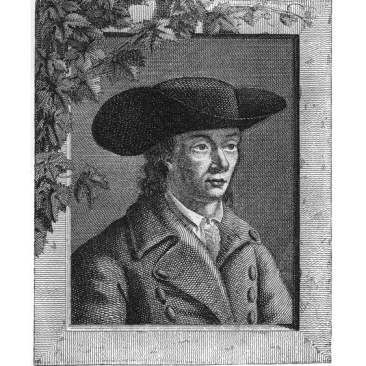Search
Karl Friedrich Bahrdt

Born - Died
Karl Friedrich Bahrdt was a German unorthodox theologian.
Bahrdt was born on August 25th, 1741 in Bischofswerda, Upper Lusatia, Germany. He is believed to have been educated at Pforta, a Cistercian monastery. There are some who believe his formal education was lacking. At 16 he enrolled in the University of Leipzig where his father was a professor. He studied theology under Christian August Crusius the noted Protestant Theologian. Bahrdt broke up the monotony of his studies by engaging in pranks which revealed his unstable character. He dabbled in mysticism by attempting to raise spirits using Dr Faust's Höllenzwang, a generic term which refers to a variety of spell books allegedly written by Dr. Faust.
After Bahrdt graduated he began lecturing on biblical exegesis, the critical interpretation of bible. He did this as an adjunct to his father. He later became a catechist at the church of St. Peter. He eventually convinced the University of Leipzig to make him a professor of biblical philology, the study of written language in historical sources. He was asked to resign from his position due to his unusual behavior.
Next Bahrdt went to the University of Erfurt where he was able to secure a chair in biblical antiquities. It was an unpaid position and he made his money as an inn-keeper and tutor. Once again he was able to convince a university to make him a professor. He was not asked to resign this time, although he did leave the position because of his debt, as well as the personal and professional quarrels with colleagues.
Bahrdt then secured a position as a professor at the University of Geissen. His behavior was essentially the same as it was at the other positions. This time though it was the publication of God's Recent Revelations in Letters and Stories from 1773 to 1775 led to his departure. This came after Johann Wolfgang von Goethe gave a memorable and scornful attack against Bahrdt.
God's Recent Revelations in Letters and Stories followed Bahrdt wherever he went and continued to make problems for him in his life. Bahrdt continued to write though, most of his works are considered worthless or caricatures of Enlightenment Rationalism. He sought to create a "moral system" to replace the supernatural nature of Christianity. In 1787 he created a secret society based on this idea called German Union of the Two and Twenty, named after the original number of members.
In 1789, Bahrdt was arrested in part for writing a pasquinade, an anonymous lampoon, of a Prussian law. After his arrest the German Union of the Two and Twenty came to an end. During his time in jail he devoted himself to writing his autobiography which has been described as "a mixture of lies, hypocrisy, and self-prostitution."
Bahrdt passed away on April 23rd, 1792 from a severe illness.
Bahrdt was believed to have joined Freemasonry prior to starting the German Union of the Two and Twenty. Some references claim other members of the fraternity joined him in the group. Regardless of whether Bahrdt was a mason, his organization of the Two and Twenty has been linked with Freemasonry although there is no tie at all between the two organizations and it is not a Rite of Freemasonry.
This article provided by Brother Eric C. Steele.